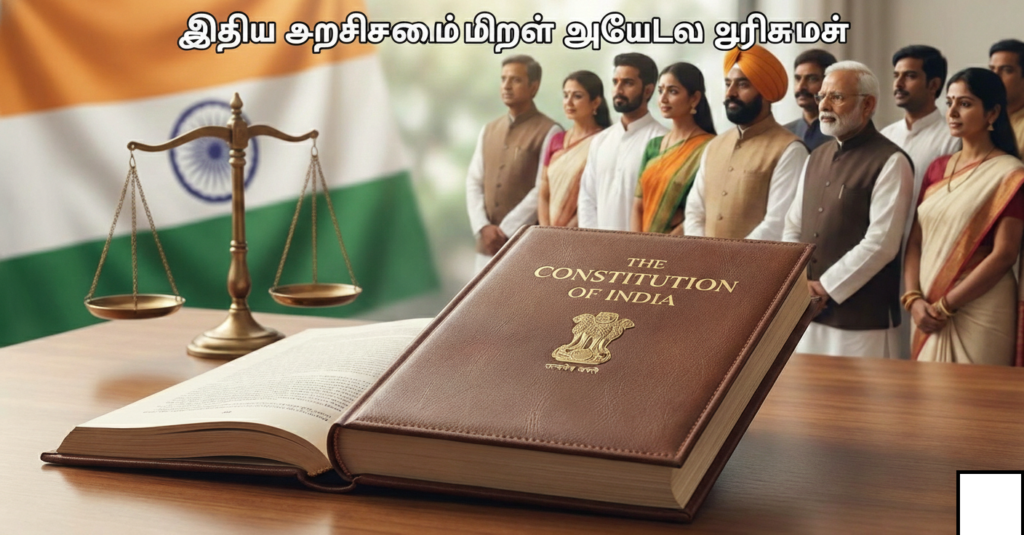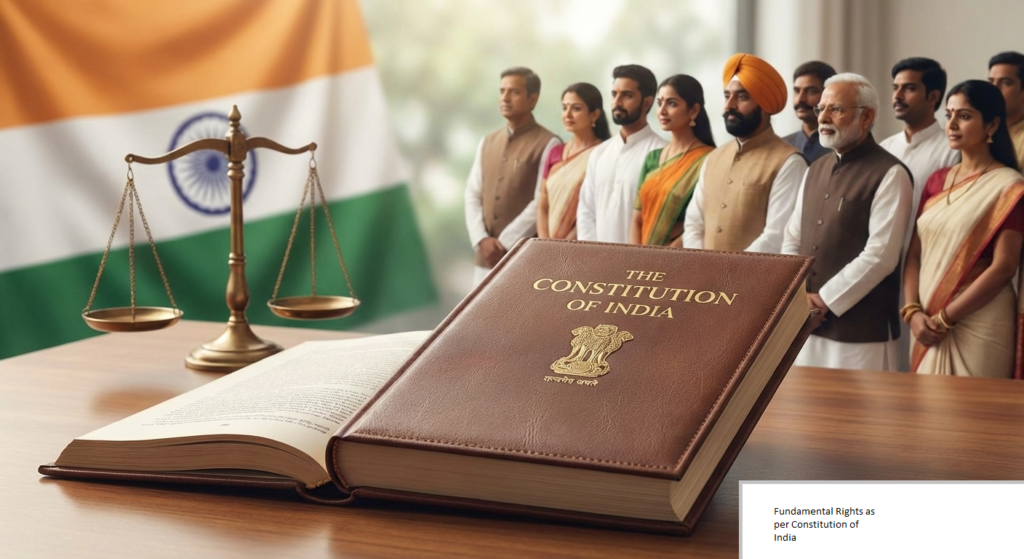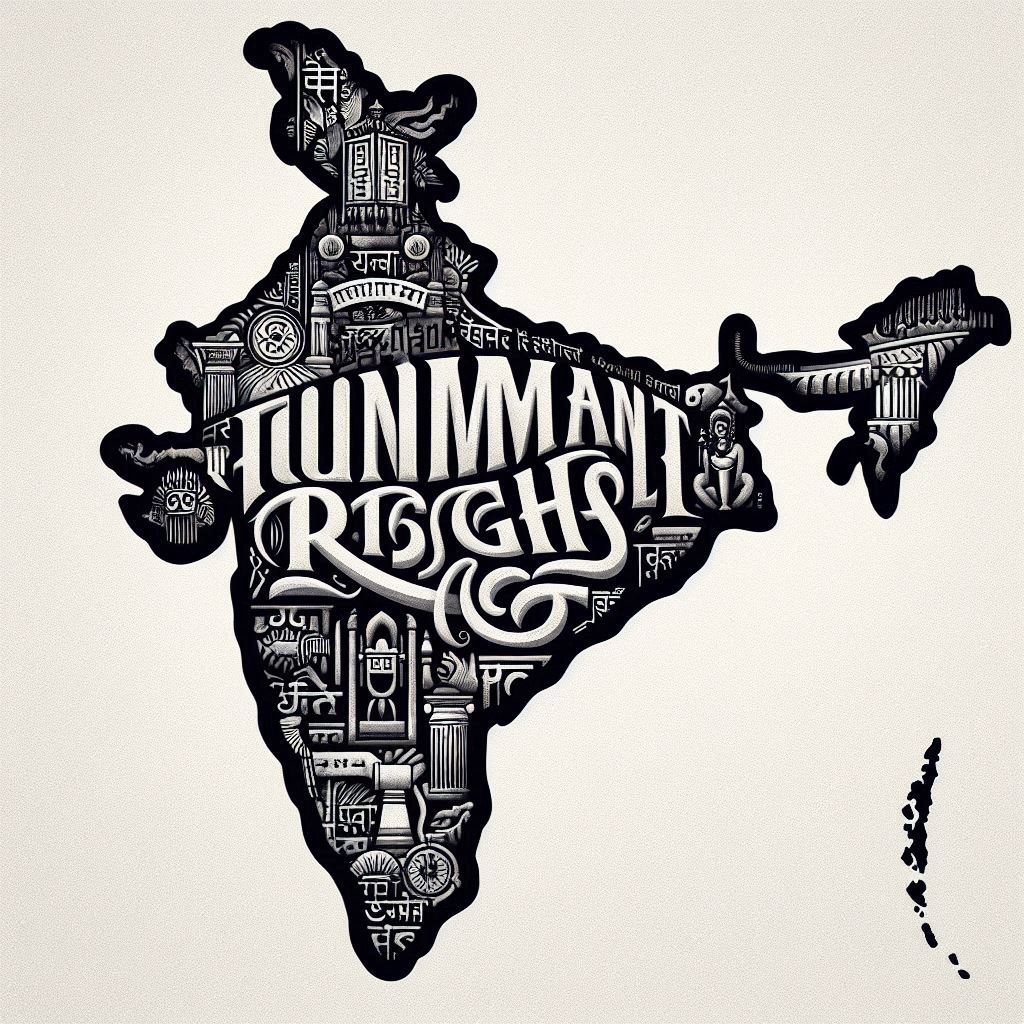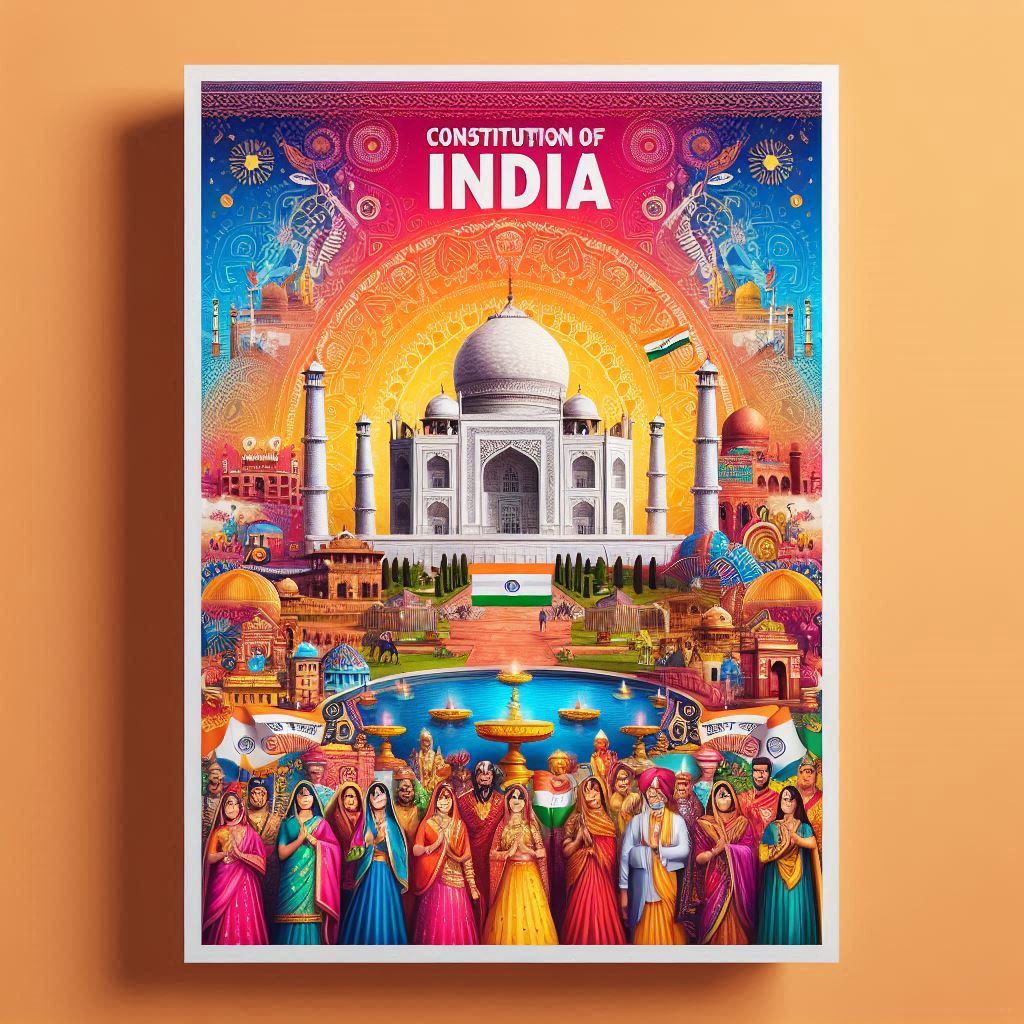இந்திய அரசியலமைப்பின் அடிப்படை உரிமைகள் | முழு விளக்கம்
இந்திய அரசியலமைப்பின் அடிப்படை உரிமைகள் (Fundamental Rights as per Constitution of India – Tamil) முன்னுரை (Introduction) | இந்திய அரசியலமைப்பின் அடிப்படை உரிமைகள் இந்திய அரசியலமைப்பு உலகின் மிக விரிவான மற்றும் முன்னேற்றமான எழுத்துப்பூர்வ அரசியலமைப்புகளில் ஒன்றாகக் கருதப்படுகிறது. இது அரசு அமைப்பின் கட்டமைப்பை மட்டுமல்ல, இந்திய குடிமக்களின் அடிப்படை வாழ்க்கை, சுதந்திரம், சமத்துவம் மற்றும் மரியாதையையும் பாதுகாக்கும் ஒரு சமூக ஒப்பந்தமாகும்.இந்த அரசியலமைப்பின் **மூன்றாம் பகுதி (Part III)**யில் இடம்பெற்றுள்ள […]
இந்திய அரசியலமைப்பின் அடிப்படை உரிமைகள் | முழு விளக்கம் Read Post »






